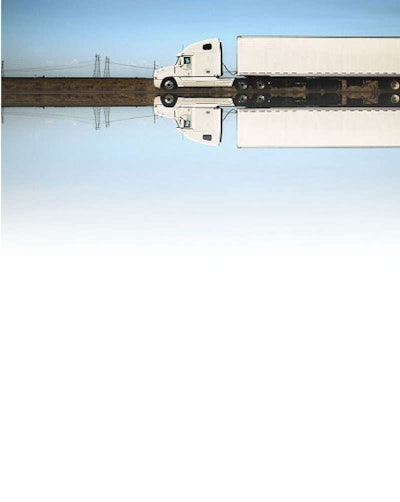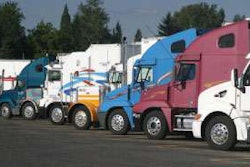
The following is an exerpt from How to Plan for Succession, a manual produced by Commercial Carrier University and sponsored by Castrol. CCU is an educational program produced by Commercial Carrier Journal that includes business management manuals, seminars aimed at improving management skills and a website. For more information, visit www.commercialcarrieruniversity.com.
Succession at a family-owned business usually means transferring ownership and management to a family member. Transition to a family member raises unique management, legal and financing issues. This chapter focuses on the management issues.
Will it work?
The worst thing you should do is assume that your child or other family member will take over just because he is a family member. Answer these questions honestly:
Does the family member have the passion for the business? If a son or daughter has never expressed an interest in the business before you raised the issue, it’s difficult to imagine him or her as an acceptable successor.
Is the family member’s motivation appropriate? If your son is only really interested in the money and perks that go with owning and managing the business, consider whether his attitude is right for the job.
Can the family member make a contribution that will help the company endure through the next generation? If not, then you may be doing your son a disservice by putting him in a position where he will not succeed, and you could jeopardize his own personal wellbeing as well as those of the employees. Make sure the family member has the skills the company needs.
Does the family member meet minimum requirements? The scope of your operation determines what knowledge and experience a successor absolutely needs. At 25 trucks, perhaps a couple of years in operations and a great rapport with drivers will get him through. But running a 750-truck carrier likely requires at minimum several years experience as the chief executive of a mid-sized operation or perhaps a slightly lower position at a larger carrier.
Do you feel obligated to keep the business in the family? If your only motivation for transferring the business to a family member is that you feel that everyone expects you to do so, then you have a problem. You obviously haven’t identified a suitable candidate yet, and perhaps there isn’t one. In the end, you aren’t doing your family or your employees any favors by handing the business to someone who can’t handle it.
For now, we will assume that you have answered these questions and are still confident that a particular family member could replace you. There still are a number of issues to work through.
Dealing with rocky relations
Because you likely are the family’s leader – or one of them – it may not matter much to you that family members don’t get along. But for the next generation, it may be a serious problem. If you already have family members in key positions within the company, consider whether your chosen successor, or any family member, can gain the confidence and loyalty of the others.
You may be able to work through even intense problems by coaching everyone to recognize their strengths and weaknesses and, in turn, their appropriate roles within the company. A facilitator outside the family may help. In some cases, however, the relationships may be so emotionally charged that a family succession is unworkable. You might have a capable successor, but family dynamics will doom the company.
Overcoming resentment
No matter how skilled and capable your child might be, you can’t ignore the fact that others in your company will presume that his pending promotion is due to family privilege, not ability. You will never convince anyone that you chose a family member solely based on performance, but the successor can at least show that he is working for the job.
As we have already discussed, it’s usually desirable for your successor to work at another company so that he has experience working outside the “old man’s shadow.” Then, while working for your company, the successor must show that he’s capable of working hard and putting in the hours. He should make a point of developing his own relationships with managers and employees in all departments. And as much as possible, family relationships and the company organization chart should be separate. In discussions with employees, Junior should refer to John or Mr. Doe, not Dad.
Be clear with employees about the future direction. Once the decision is made that a family member is being groomed to replace you, communicate that fact to key managers and employees.
Don’t forget about customers. Let your most important customers know one by one at lunch or some other face-to-face setting. Ask them to keep it confidential until the announcement; they will appreciate this gesture of trust. Notify the rest of your customers by personal letter to arrive at the time of or immediately prior to your formal announcement. Don’t let them be surprised.
Handling compensation
In a family business, it’s not necessary for the would-be successor to sign an employment contract unless other top managers have them. On the other hand, he must have a clear understanding of his role in the company, your expectations of him, when raises and evaluations occur and the strategy of the company.
Pay your family successor and any other family members on the same basis as other employees. Salary should be based on responsibility, experience, skills and hours worked. You really shouldn’t be distributing your company’s profits to family members in the form of salary. Ask other trucking company owners, your CPA or perhaps an outside board for help in establishing a uniform compensation plan.











